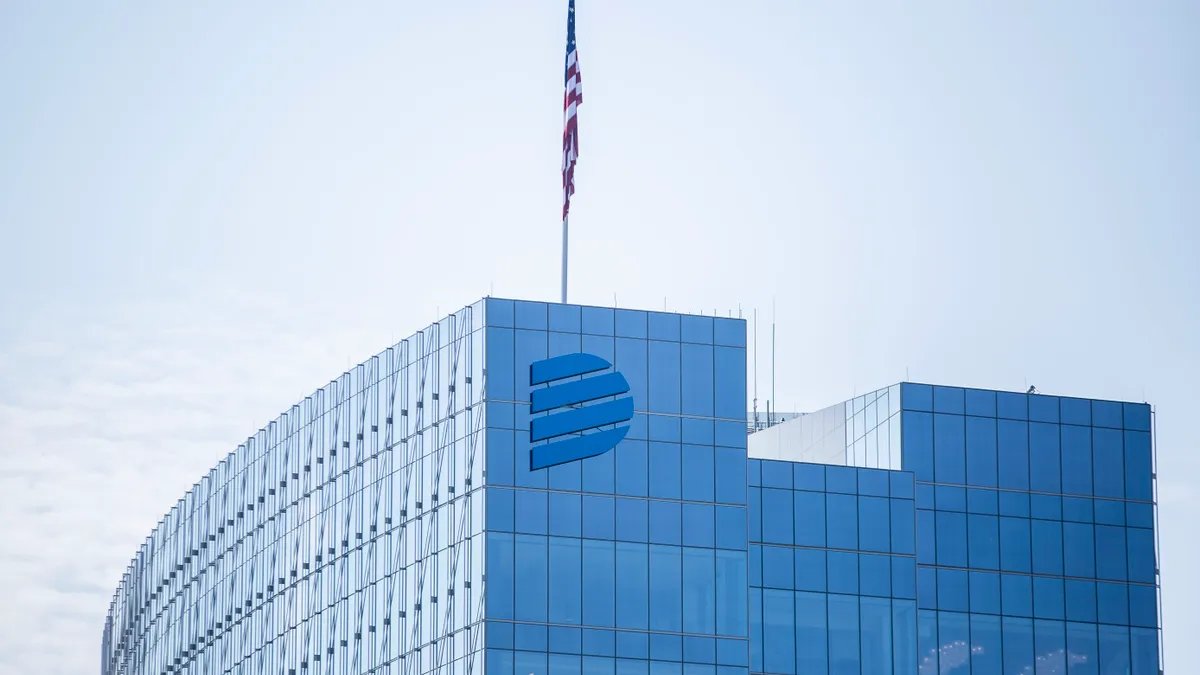Dive Brief:
- Dominion Energy subsidiary Virginia Electric and Power Co. failed to meet a 1.25% energy savings target in 2022, the State Corporation Commission said in an order dated July 26. The savings goal was established by the Virginia Clean Economy Act, passed in 2020.
- Dominion’s energy efficiency programs achieved energy savings of 1.23% in 2022, relative to a 2019 baseline, meaning it cannot receive a $6 million performance bonus it applied for and must meet additional criteria in order to move ahead with 1 GW of new gas-fired peaking generation, said Nate Benforado, senior attorney at the Southern Environmental Law Center.
- The Virginia Clean Economy Act set energy savings targets for a four-year period, and requires state regulators to continue updating them annually for three-year periods. “We thought there was a chance they might meet the first year based on prior procedings, but it seems very probable they won’t hit any of the targets through 2025,” Benforado said.
Dive Insight:
Dominion did not immediately respond to a request for comment about its energy savings targets, or how the SCC’s decision might impact its ability to construct four 250-MW combined cycle turbines in Chesterfield County, Virginia.
The miss hinged on whether energy savings targets were determined based on “gross” or “net” savings, Benforado said. Dominion proposed using a gross measurement, which includes so-called “free rider” savings not directly attributable to the utility’s efficiency programs. The SCC ultimately detemined that net savings were the appropriate measure.
Gross savings could include savings associated with a customer who decides to upgrade to a more efficient appliance and subsequently applies for rebates provided by the utility.
“Dominion marketing didn’t actually drive those savings, so it’s a well-accepted process to back out those effects to understand what the utility program is actually achieving,” Benforado said.
Dominion failing to meet the savings target “narrows its approval pathway” for the proposed Chesterfield turbines, he said. Under the Virginia Clean Economy Act, the SCC may only authorize new carbon-emitting resources for a utility that failed to meet its savings targets if the utility establishes a specific reliability or security threat, and the power plant must be cheaper than other options.
Dominion proposed beginning construction on the new generation in 2026, bringing it into service in 2028 to meet growing demand from data centers and electrification.
Looking ahead, the statute set Dominion cumulative energy savings targets at 2.5% in 2023, 3.75% in 2024 and 5% in 2025.
Dominion has not yet come up with a streamlined process for customers to access energy efficiency programs, including weatherization, home assessments and appliance rebates, Benforado said.
“We think if the company were really able to improve how they do their efficiency programs, they could unlock a lot more svaings for cusyomers,” Benforado said. Dominion will likely file their next batch of energy efficiency programs in December, he added.














